
Content Warning: This article contains references to suicide.
When the average American thinks of hip-hop, introspection may not be the image that comes to mind. However, in the past decades of the genre’s evolution, artists have become increasingly interested in discussing the hardships that take place inside their minds and bodies in addition to those that occur outside. Hip-hop artists Tyler, the Creator and Mac Miller have exemplified this evolution towards confidence in vulnerability. However, the shift has been taking place since the very beginning. Here are a few hip-hop songs that represent the genre’s movement towards increased conversation about mental health.
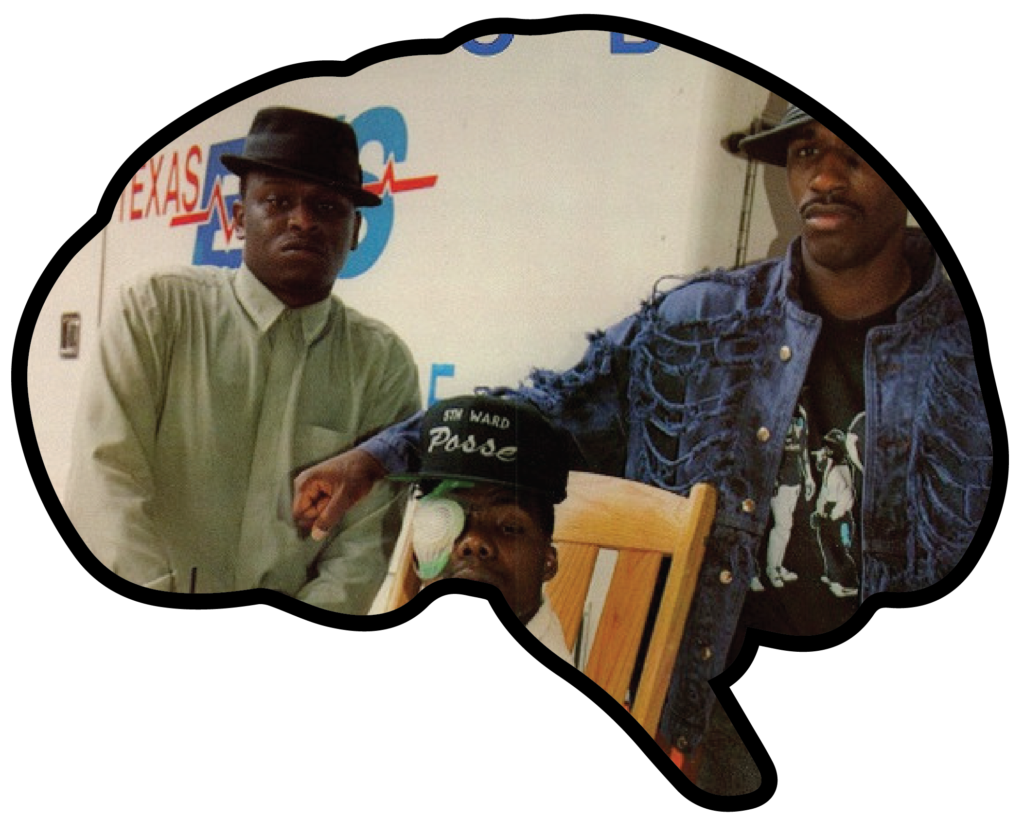
“Mind Playing Tricks” (1991) by Geto Boys
Notable Line: “At night I can’t sleep, I toss and turn / candlesticks in the dark, visions of bodies being burned”
Scarface and Geto Boys crafted what is widely considered to be the first hip-hop song explicitly about mental health. Other artists had already begun the creation of the “hip-hop protagonist,” an outlaw set against the system, but Geto Boys flipped this motif on its head, offering a backstage look into the post-traumatic stress that the 1990s hip-hop gangster experiences upon returning home.
The result is a profoundly moving and vulnerable analysis of the life a glorified character leads. In the story, the speaker describes a man stalking him wearing a “black suit and hat like my own.” Seemingly, our protagonist realized that he is, to others, what he himself fears.
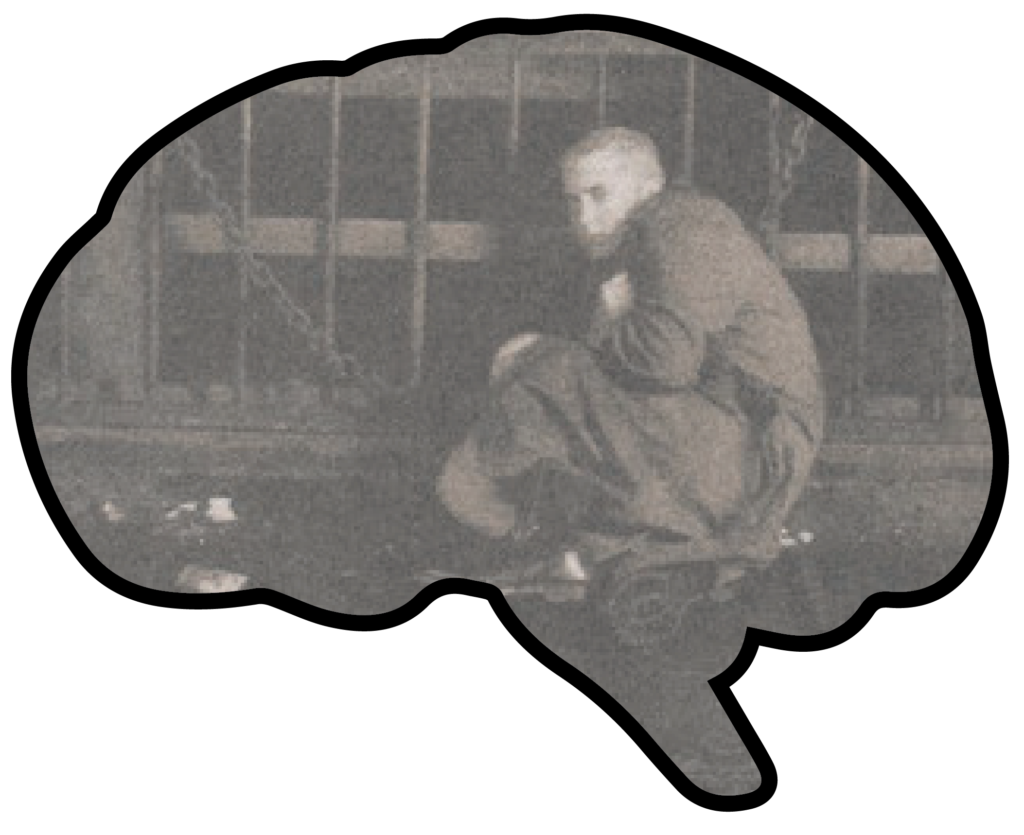
“Stan” (2000) by Eminem.
-BRODSKY’S MUST LISTEN-
Notable Line: “Dear Slim, I wrote you but you still ain’t calling / I left my cell, my pager and my home phone at the bottom”
Few songs are so impactful that they coin a term to be recognized in dictionaries. One of hip-hop’s classic stories, “Stan” narrates the hellish tale of an obsessed fan. From the perspective of “Stan,” the fan himself, we are allowed an insight into his neverending crafting of letters to be sent to Eminem. The song also highlights Eminem’s masterful lyricism, increasingly heightening the stakes with which our troubled protagonist calls out to his cold and silent idol. In the end, the story ends tragically, Eminem finally responding to Stan’s letters before recalling a suicidal accident he had seen on the news. Em comes to a heartbreaking realization: “in the car they found a tape / but they didn’t say who it was to / come to think of it, his name was— / it was you.”
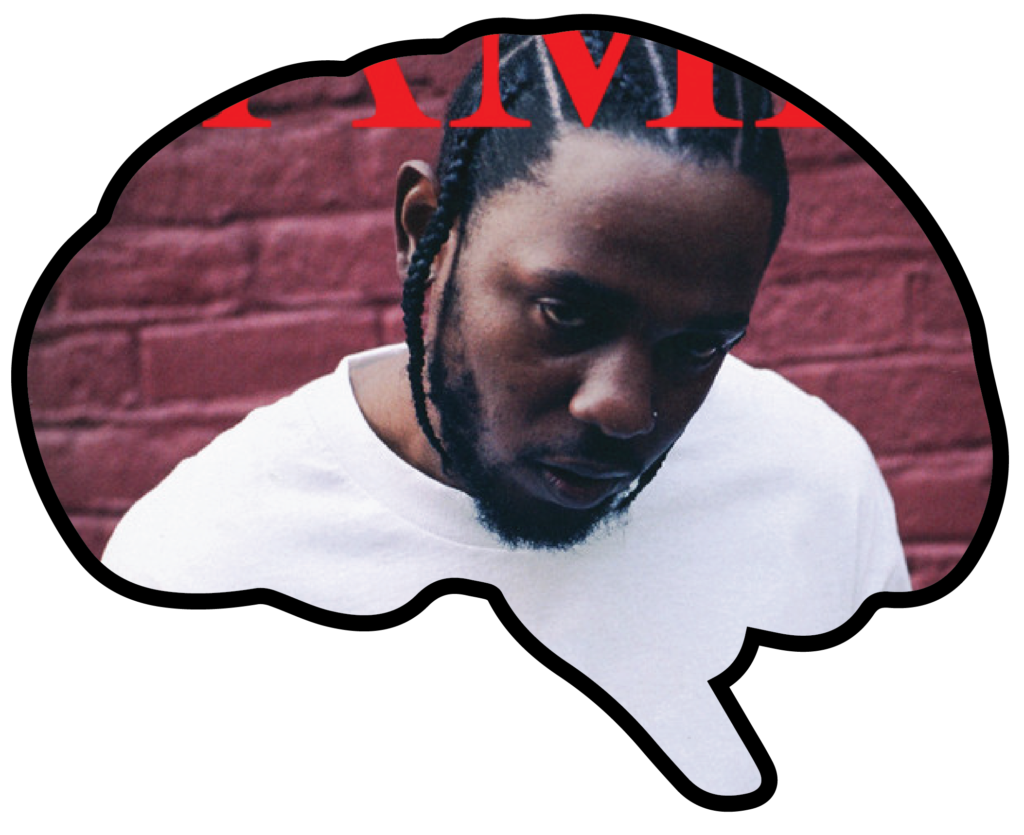
“FEEL.” (2017) by Kendrick Lamar
Notable Line: “I feel like the whole world want me to pray for ’em / but who the f— praying for me?”
“FEEL.” is a litany of brilliant emotions, a rolling expression of the stresses Lamar was navigating at the time of its conception. In Lamar’s typical artistic dexterity, the structure of the song mirrors the content, spiraling out of its litanic form as more dire feelings are felt. At first, Lamar admits that “I feel like I’m losing my focus,” before feeling like “bad dope, a quarter ounce manipulated with soap.” This shift is a reference to crack cocaine, a drug stereotypically associated with Black Americans, penalized at ten times that of powder cocaine, a drug historically connected with white Americans. In his feelings, Lamar can embody the idea of “I can’t change the world until I change myself,” a key statement of his goals. Connecting these motifs allows the song to be as powerful as it is: a feat of artistic greatness.
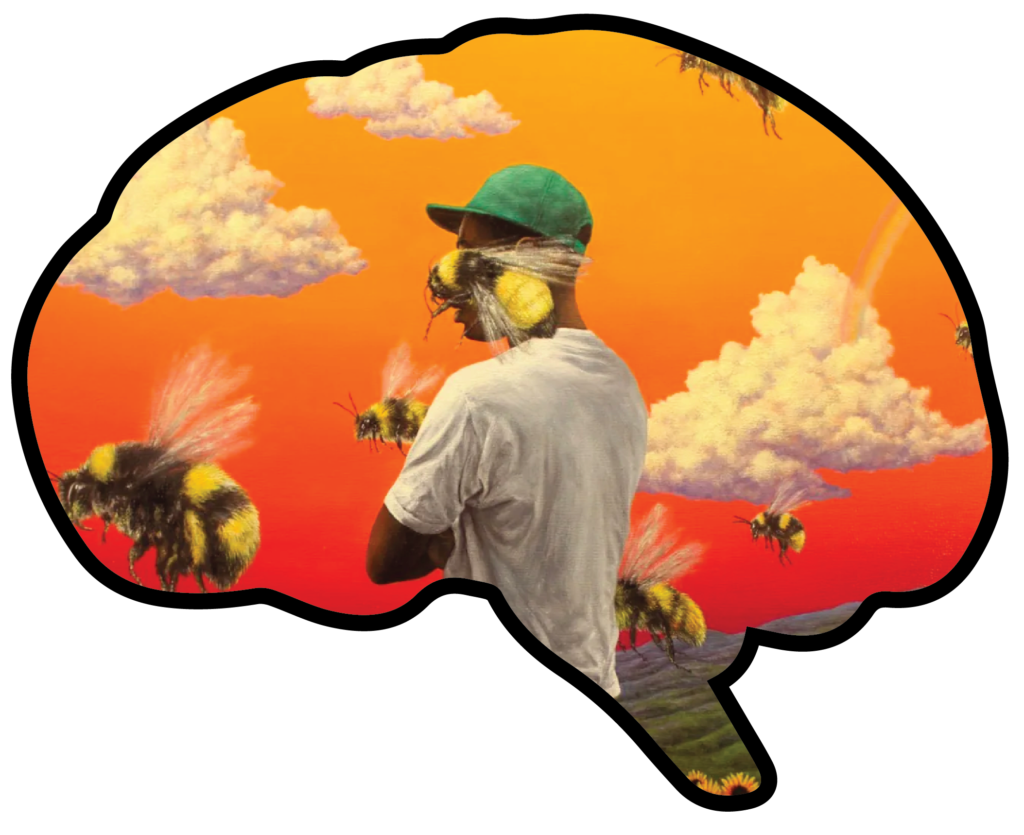
“November” (2017) by Tyler, the Creator
Notable Line: “What if I thought the brake was the gas? What if I crashed? / What if these deep thoughts was my last? Let me pull over, quick”
A standout track from Tyler’s “Flower Boy” (2017), “November” creates a chronological symbol of the time in our lives we will look back upon as the “good ol’ days.” Tyler launches into an array of “what ifs,” questioning everything from the widespread acceptance of his art to approval of his sexuality by loved ones. Later, in a montage that will make any hip-hop head smile, Tyler features many of his colleagues saying what their “November” is. After this encouragement, he begins to shift his mindset, mentally allowing his “November” to be “right now.”
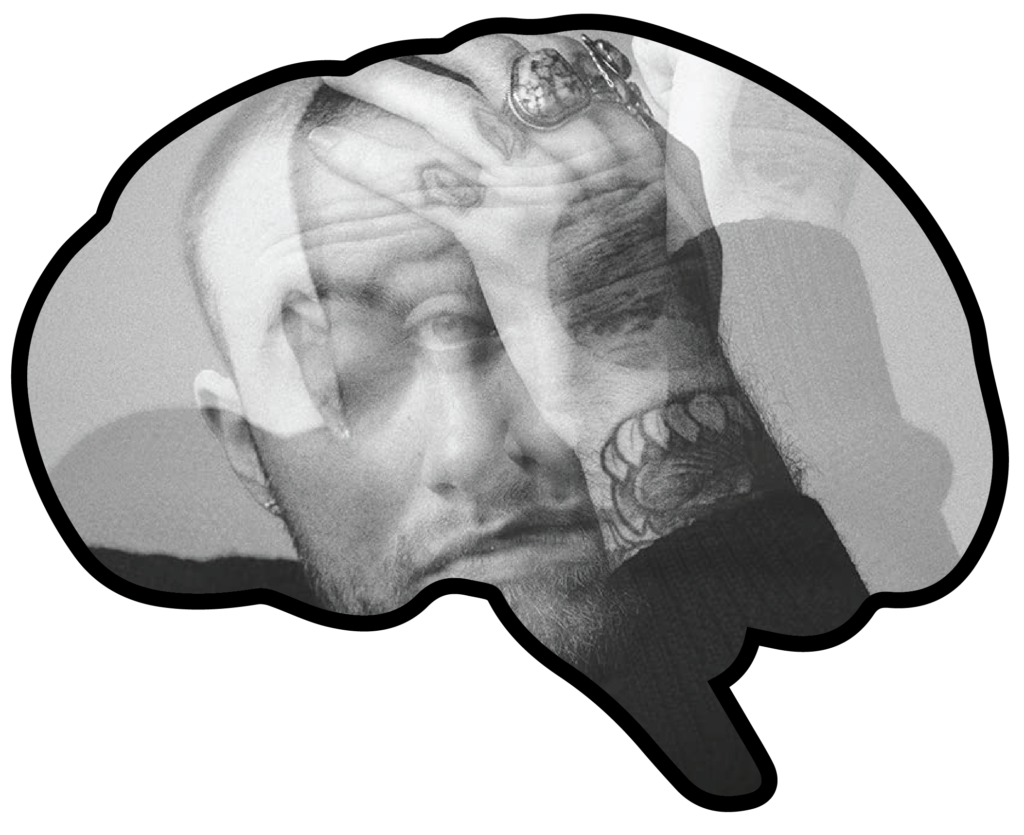
“Good News” (2020) by Mac Miller
Notable Line: “Wake up to the moon, haven't seen the sun in a while / But I heard that the sky's still blue”
Likely this list’s most tragic song, “Good News” was released on Mac Miller’s “Circles,” (2020), a posthumously-released album. This reality changes the listening experience drastically from a once-in-a-generation artist struggling with loneliness and mental health troubles to a man who has succumbed to them. Over a background of watery, plucked strings, Miller half sings, half talks through his thoughts; thoughts that can be heard as debating whether his presence on Earth is one that is valued. Now, I listen to “Good News” as Miller singing down from heaven, assuring us that his all-too-common fate “ain’t that bad.” Regardless, I still miss him.
If you are having thoughts of suicide, you can call Student Intervention Services at (404) 430-1120 or reach Emory’s Counseling and Psychological services at counseling.emory.edu. You can reach the Georgia Suicide Prevention Lifeline at (800) 273-TALK or namiga.org/crisis-info and the Suicide and Crisis Lifeline at 988 or 988lifeline.org.









